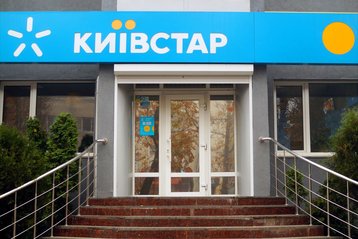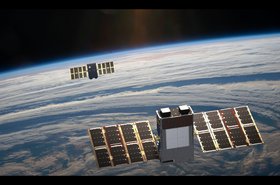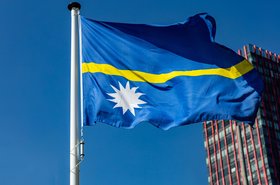Veon's Ukrainian subsidiary Kyivstar has signed an agreement with SpaceX's Starlink that will deliver direct-to-cell satellite connectivity in Ukraine.
Kyivstar said the partnership will strengthen the company's connectivity, amid Ukraine's ongoing war with Russia.
In an announcement last week, Kyivstar said it expects to launch Starlink's direct-to-cell services with SMS and OTT messaging functionality in the fourth quarter of 2025 for its customers and plans to expand to voice and data in later stages.
The partnership further extends Elon Musk's Starlink coverage in Ukraine.
In the wake of Russia’s invasion of Ukraine in 2022, thousands of Starlink terminals were given to Ukraine, some of which were paid for by the US government and other governments. The service has helped to keep Ukrainians and the Ukrainian military connected during the war.
“Kyivstar has been the backbone of Ukraine’s resilience throughout the war, and we are committed to leaving no stone unturned to keep Ukraine connected," said Oleksandr Komarov, Kyivstar CEO.
"Our collaboration with Starlink is a game-changer in our journey towards achieving our ‘LTE everywhere’ ambition. We are humbled to be the operator that serves its customers with exceptional services, and the company that brings the invaluable capabilities of global technology giants to the people of Ukraine through our international partnerships."
Veon, the parent company of Kyivstar, last year increased its investment in the carrier to $1 billion for the period between 2023 and 2027.
Since Russia invaded Ukraine in February 2022, Kyivstar has built 1,895 new LTE base stations and upgraded about 13,200 existing base stations to 4G.
The telco has added more than 4,100 residential areas to 4G coverage, noting that 95 percent of the population of territories controlled by Ukraine have access to 4G services on Kyivstar's network.
By the end of next year, Kyivstar wants to cover 98 percent of the population with 4G coverage.
It was reported last month that the US government awarded SpaceX a contract to expand its Starlink satellite service network in the country. That particular contract will see Starlink provide a more secure, militarized version of its satellite network.
Separately this week, Bloomberg reported that SpaceX is locked in talks with the Italian government over a potential deal that would see the company provide secure telecommunications for the government.
The deal could be worth as much as €1.5 billion ($1.6bn), and run for as long as five years.
Bloomberg reported that the project has already been approved by Italy’s Intelligence Services as well as Italy’s Defense Ministry.
Bezos prepares to rival Musk in UK's satellite broadband market
Amazon founder Jeff Bezos wants to launch a satellite broadband service in the UK to rival Musk's Starlink, according to a report by The Telegraph.
The newspaper reports that services could be provided this year through Amazon's satellite division Project Kuiper. Amazon wants to gain increased access to Britain’s radio waves “over the next one to two years” as it “expands the capabilities of its first-generation system."
Plans for the company’s Project Kuiper constellation were first revealed in 2019 and Amazon aims to launch more than 3,000 satellites into Low Earth Orbit (LEO) over the next few years to provide broadband connectivity.
Amazon has to launch half of its planned 3,236-satellite constellation by July 30, 2026, or risk losing its FCC license to operate the satellite network. To date, the company has launched two prototype satellites for the project, which have been de-orbited.
Last month, the Taiwanese government confirmed it's in talks with Amazon's Project Kuiper subsidiary over a partnership for satellite-based communications in an effort to preserve communications if China attacks.
Taiwan's technology minister Wu Cheng-wen told the media that the OneWeb network of French satellite operator Eutelsat, which partnered with the island’s state-backed Chunghwa Telecom in 2023, has fallen short of expectations.
In other recent satellite news:
- Eutelsat has restored services across its Low Earth Orbit (LEO) OneWeb broadband network after it suffered a two-day outage earlier this month. The French satellite operator blamed the outage on a software issue, which was caused by a failure to account for 2024 being a leap year. Separately last month, Eutelsat selected Airbus Defence and Space to support the expansion of its OneWeb LEO constellation.
- SES confirmed last month that its latest pair of O3b mPOWER satellites were successfully launched into space by a SpaceX Falcon 9 rocket from Kennedy Space Center in Florida, United States. The satellites join the first six O3b mPOWER spacecraft already in operation at Medium Earth Orbit (MEO), adding incremental capacity to the initial O3b mPOWER constellation.
- Slam Corp has extended its merger deadline with Lynk Global until March 2025. However, the company must refund $81m to investors who redeemed shares instead of seeking a stake in the direct-to-smartphone satellite operator. The two companies initially announced the planned merger in December 2023.
- K2 Space has signed a $60m contract with the US Space Force to launch its first Mega Class satellite on a mission code-named "Gravitas." The contract includes government funds, Small Business Innovation Research (SBIR) matching funds, and private funds. Gravitas is expected to fly no earlier than February 2026.
- Colorado-based aerospace company Sierra Space confirmed that its CEO Tom Vice has retired from the company at the end of 2024 after three-and-a-half years at the helm.







